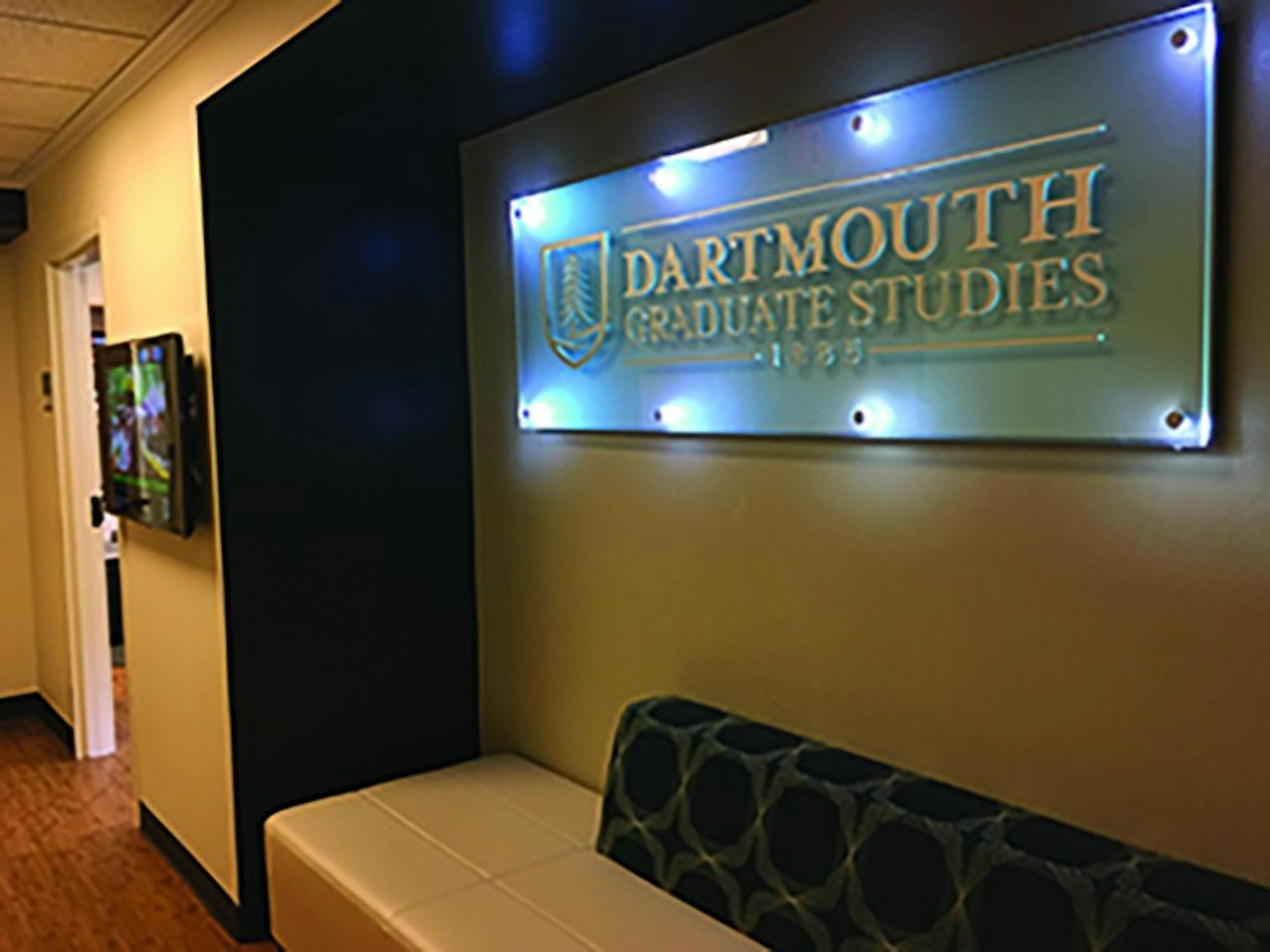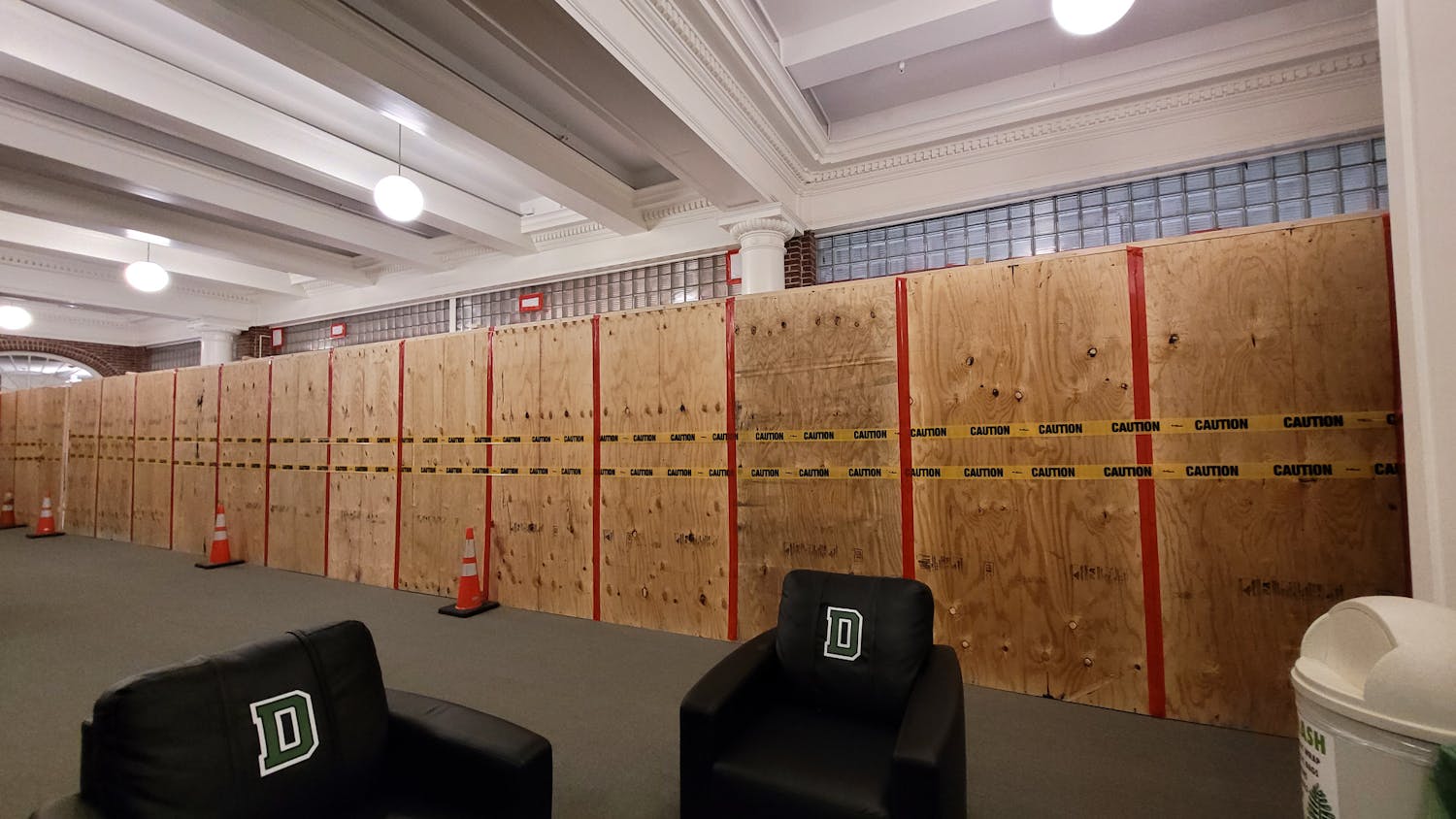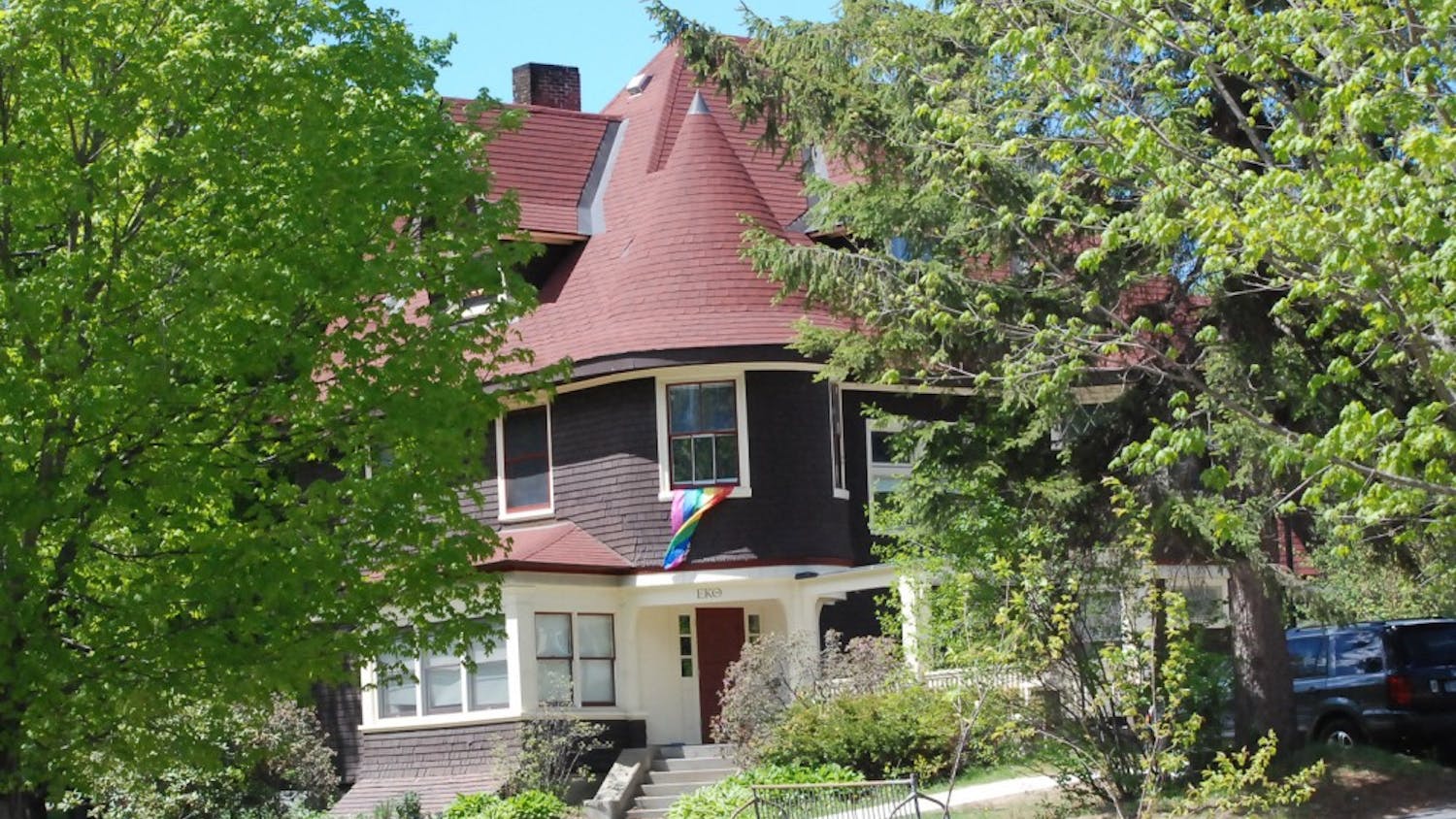Dartmouth’s new School of Graduate and Advanced Studies will open today. Hailed by many graduate students and faculty as an important step in creating a strong culture of research and excellence in graduate study at the College, in its inaugural year, the school will provide a permanent home to the 791 graduate students in the arts and sciences.
“Dartmouth is not just a college,” Graduate Student Council finance chair Ed Feris GR ’17 said. “Obviously, Dartmouth College is a tradition, but it’s really a university.”
To many, the graduate school represents a shift toward an increased focus on research and interdisciplinary interaction amongst graduate students. F. Jon Kull ’88 will serve as the dean of the new school, known as GRAD, an acronym for “Graduate and Advanced.”
Kull wrote in an email that the school will not cut into Dartmouth’s existing mission as an undergraduate-focused institution but does hope the research and graduate programs housed in GRAD will bolster Dartmouth’s reputation across many disciplines.
“Dartmouth will continue to be the premier institution emphasizing the teacher-scholar model, and I am confident our faculty will continue to be, not only world-class researchers, but also scholars passionately dedicated to the art of teaching undergraduates,” he wrote. “But we also realize Dartmouth’s reputation is influenced by the impact and quality of the research and scholarship we do here.”
The new school will house the almost 800 graduate students in doctoral and masters programs currently housed under the general arts and sciences bailiwick and will also absorb postdoctoral researchers, including members of Dartmouth’s Society of Fellows, which College President Phil Hanlon founded in 2014. It joins the Geisel School of Medicine, Tuck School of Business and Thayer School of Engineering in offering graduate programs at the College.
Currently there are no plans to expand the number of graduate students or faculty through the new school, but Kull said GRAD could make such changes in the future.
“In the very short term we are working out many devil-in-the-details issues related to the administrative change,” Kull wrote.
The graduate school is not immediately intended to expand but GRAD “has the capacity to fully support new programs that faculty might develop,” he wrote.
Graduate students interviewed were universally enthusiastic about the school.
“This is a first step in strengthening the entire institution,” Graduate Student Council president Kyla Rodgers said. “Having a graduate school puts us on the same level as our peer institutions at the other Ivy League schools, so this should serve to attract more high quality graduate students and it should also be something that’s good for undergraduates.”
Feris noted that the creation of a separate, degree-awarding graduate school will increase the heft of Dartmouth’s graduate degrees and brings the College in line with its peer institutions, most of which have had freestanding graduate schools for decades.
Master of arts in liberal studies student Preetha Sebastian GR ’17 said GRAD, which currently has no physical plant, could benefit from its own building in the future, but in the short term she said the school will foster greater interdisciplinary cooperation amongst graduate students and create a stronger community for them.
Another major issue the school hopes to address is funding. While current graduate funding can be disjointed, coming from a variety of professional schools and from Dartmouth’s arts and sciences faculty, GRAD aims to “have one big umbrella” to allocate funds, doctoral candidate Janice Galejs GR ’19 said.
“I think that by creating this graduate school and by creating the letterhead, we can start looking for donors and getting our own funding,” she said.
Indeed, the symbolic heft of GRAD may be one of its largest contributions to Dartmouth. Rodgers said the College’s graduate programs seemed smaller than they in fact were due to the lack of an official graduate school, leading outside observers to underestimate Dartmouth’s contributions as a center for research and graduate studies.
“It’s more of an administrative shift than anything, but it does give kind of the language to address what we are as an institution, so instead of just being a grad studies office in the arts and sciences school — which sort of belied the size of the graduate community — now we have something that will give all the grad students more recognition,” she said.
Kull wrote that the school will enable Dartmouth to attract stronger graduate students and postdoctoral researchers, a major boon to faculty in all departments. Having access to the best academics available will be a major contribution to the campus community, he wrote.
The ability of the school to raise funds independently of the rest of the College “gives the school a lot more prestige [and] means it can become more like a university rather than just a college,” Feris said.
According to biochemistry professor Dean Madden, a member of the faculty task force that undertook the creation of GRAD, Dartmouth is now “ahead of the curve” in updating its graduate teaching, moving away from what he called “a model that developed in the beginning of the 20th century.”
Madden emphasized the careful process behind the creation of the graduate school, which was approved by a general faculty vote in November with 174 professors voting in favor with nine opposed. Kull announced plans for GRAD in late October, less than a month before the faculty approved the plan.
“We had to make sure that this was something that fit into the Dartmouth community,” Madden said. “The community did this very thoughtfully, and I think it’s really going to pay dividends across campus, for graduates and undergraduate students and for faculty and postdoctorate students as well.”
Moreover, the school could provide for key “cross-fertiliz[ation of] the undergraduate community,” according to Madden.
A strong graduate program best serves the undergraduate population, Galejs said. She cited her own undergraduate experience at Rensselaer Polytechnic Institute, which has roughly as many graduate students as undergraduates, as an example for an ideal system of graduate-undergraduate interaction.
“If we keep segregating everybody, that would enable parts of the community to suffer,” she said.
Kull wrote that the new school would not take away from Dartmouth’s focus on undergraduates, noting in his email that GRAD will join Dartmouth’s existing professional schools, founded in 1797, 1867 and 1900.
“I don’t think that will take away from the undergraduate focus at all, actually,” Rodgers said. “One thing that I would say is that graduate students actually account for well over a quarter of the student body at Dartmouth and one of the feelings that a lot of graduate students have is that there is not as much visibility as we would like.”
Rodgers said she has heard people say Dartmouth is not a strong research institution because of a lack of graduate students, an observation she believes is factually inaccurate.
Former Graduate Student Council president Erin Brioso GR’16 wrote in an email that she hopes the new school will increase focus on humanities graduate programs while also “leveling the playing field” for graduate students at Dartmouth.
Brioso also cited potential expansion of graduate programs as an exciting opportunity for GRAD moving forward, although Kull has said no such plans currently exist.
Graduate students interviewed hope to see more interaction between members not just of different graduate programs but also between graduate and undergraduate students.
“Undergraduates become graduate students, so if you want your undergraduates to become very successful you need them to intermingle with graduate students,” Galejs said. “We will bring better professors, bring better students, and we can increase Dartmouth’s capabilities as a research institute.”




